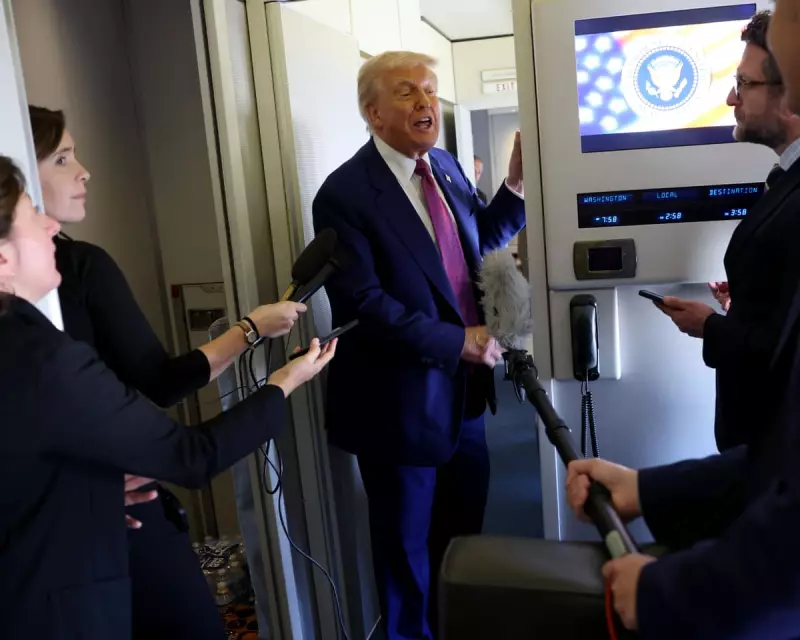
The spectre of Donald Trump pursuing an unprecedented third term as US president is no longer confined to political speculation, but has become a tangible concern for constitutional scholars and democracy advocates alike. Despite the clear language of the 22nd Amendment limiting presidents to two terms, Trump's recent rhetoric suggests he might attempt to circumvent this bedrock principle of American governance.
The Constitutional Barrier: What the 22nd Amendment Actually Says
The 22nd Amendment, ratified in 1951, explicitly states that "no person shall be elected to the office of the President more than twice." This constitutional safeguard was established precisely to prevent the emergence of indefinite executive power, drawing from historical concerns about presidential overreach.
Legal experts universally agree that the amendment's wording leaves no ambiguity about third-term eligibility. Yet Trump's campaign has increasingly floated theories about potentially challenging this limitation, creating uncertainty where constitutional lawyers see none.
The Political Landscape: Why This Discussion Matters Now
Several factors have converged to make this previously unthinkable discussion part of mainstream political discourse:
- Expanded executive power theories gaining traction within certain political circles
- Precedent-breaking approaches to governance that characterised Trump's first term
- Shifting public perception of constitutional norms among some voter bases
- Strategic ambiguity from the Trump campaign regarding future intentions
Historical Context: America's Long Tradition of Peaceful Transfers
Since George Washington voluntarily stepped down after two terms, the tradition of presidential term limits has been fundamental to American democracy. Franklin D. Roosevelt's four elections represented the exception that prompted the 22nd Amendment's creation, making term limits constitutional law rather than mere tradition.
"What we're witnessing is the testing of constitutional guardrails that have held firm for generations," notes Dr Eleanor Vance, constitutional historian at Cambridge. "The real danger isn't necessarily a successful third-term bid, but the normalisation of discussing what was previously considered undiscussable."
Potential Scenarios: How Could a Third-Term Bid Unfold?
While most constitutional scholars consider a legal third term impossible, several pathways have been speculated:
- Constitutional amendment - Extremely unlikely given ratification requirements
- Legal challenges - Arguing technicalities about service interruptions
- Political pressure - Testing the Supreme Court's interpretation
- Extra-constitutional approaches - The most concerning scenario for democracy watchdogs
Broader Implications: Why This Matters Beyond US Borders
The stability of American democracy has global ramifications, affecting international alliances, economic markets, and democratic movements worldwide. A successful challenge to presidential term limits would represent the most significant reshaping of US governance in modern history, potentially inspiring similar movements in other democracies.
As the 2024 election approaches, the conversation around Trump's intentions serves as a critical stress test for American constitutional resilience. The outcome may determine not just who occupies the White House, but whether foundational democratic principles can withstand unprecedented political pressure.





